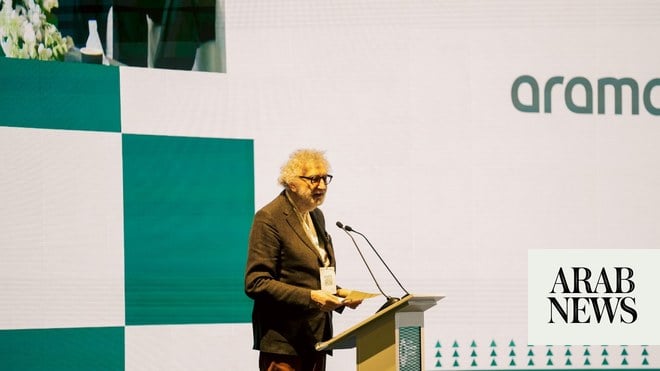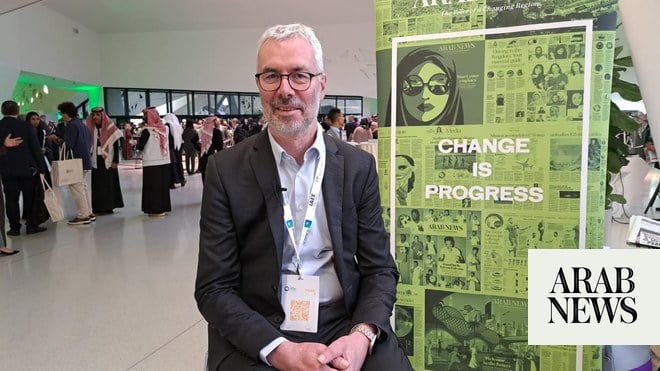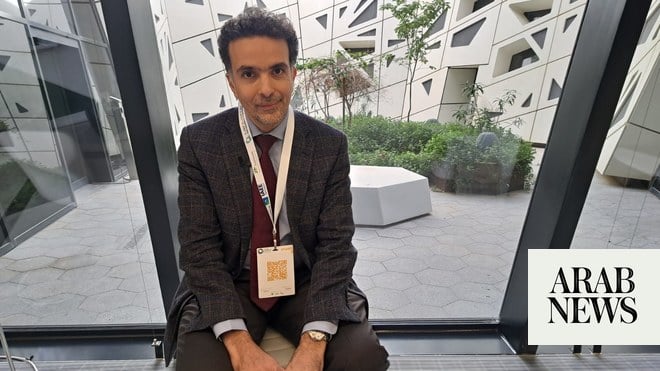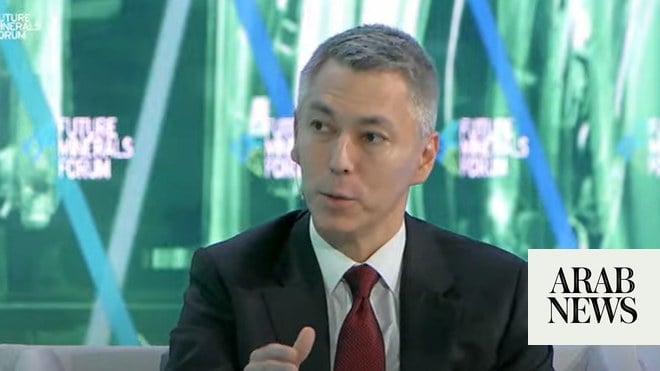
RIYADH: Stressing the need for cooperation in the journey toward energy transition, the president of the International Association of Energy Economics said the shift should be led by energy-rich countries.
“Energy tech is coming to strengthen energy transition. Oil and gas-rich countries are now building their own way for the energy transition. The energy transition is not coming from western countries or India or China, and it is being led by energy-rich countries, but we have to learn, what time, what speed, etc,” Jean-Michael Glachant said. He also made it clear that financing is the key to achieving these goals.
In an exclusive interview with Arab News, Glachant said it will take another 30-50 years to achieve a transition to green energy.
“We are not close. But we are really starting. For about 15 years, we discussed; should we start, and when should we start. And now we are all understanding, yes, we have to do it. It will take 30 to 50 years,” he said.
“As long as we stay together, we are able to contain the damage. We have to find a way to compensate for damages because some countries will suffer more, while other countries less.”
The IAEE official said his organization is not just grateful but also lucky to host its 44th conference in Saudi Arabia, as the country is one of the key players in accelerating the global energy transition.
Glachant said that in line with its Vision 2030 blueprint, the Kingdom is charting its national sustainability path and setting an example for the rest of the world.
“There are many many advantages for IAEE to have Saudi Arabia as the host country. We are an association for energy economics. Saudi Arabia is building its own national sustainability path with its 2030 agenda. It is not only a pleasure, but it is an honor to enter the Kingdom and to discuss and interact with open-minded people of the region,” said the IAEE president.
“Saudi Arabia is leading a voice of the developing world in energy affairs. And we, at IAEE, want to discover what we can learn from Saudi Arabia,” he added.
It should be noted that the 44th IAEE conference is taking place in Riyadh from Feb. 4-9, and this is for the first time this event is being hosted in the Middle East.
“In this program, you would see that no big region in the world has been left behind. Really, the Saudis have done their best to have all the relevant people and all the relevant issues being put together,” he said.
According to Glachant, Saudi Arabia has several ideas about sustainable energy transition to share with the world and the IAEE event will serve as the perfect platform to showcase and discuss those ideas.
“To learn something is the core of the IAEE conference. When we do not learn something, the event is a failure. This is the first event in Saudi Arabia. Saudi Arabia is becoming independent in the way it is seeing the future and becoming rich to finance the future. If we cannot learn from such a place, I think we are sick,” he noted.
Glachant noted that the Middle East and North Africa region is leading the energy sector in the world and that the Saudi capital Riyadh is one of the most prominent global destinations for business and finance.
“Saudi Arabia is the world’s No. 1 country in terms of growth these days; not just growth in the oil sector, but also in the non-oil sector. So, Saudi Arabia is doing the unexpected by exploring new paths,” added Glachant.
He also lauded the efforts of the King Abdullah Petroleum Studies and Research Center in Saudi Arabia in carrying out research and framing energy policies to support a sustainable transition to green energy.
According to Glachant, the IAEE conference in Riyadh will help exchange ideas with big names in the region, and added that MENA is the “hotspot of energy which is also building its own energy economy.”
Glachant pointed out that there are several pillars of the energy transition, which include technology and innovation, direct and indirect investments, etc.
“It (energy transition) is a kind of car race. When you see your neighbor driving faster, sometimes, you try to do better than your neighbor,” he added.
Glachant was of the view that more progress was needed in the maritime and aviation sectors to meet sustainable targets.
“It is about technology innovation. We have to find ways of having that (aviation and maritime sectors) sustainable in a different way. Some planes run on electricity for small distances. But for long distances, what do we do? For maritime, what do we do,” Glachant questioned.












